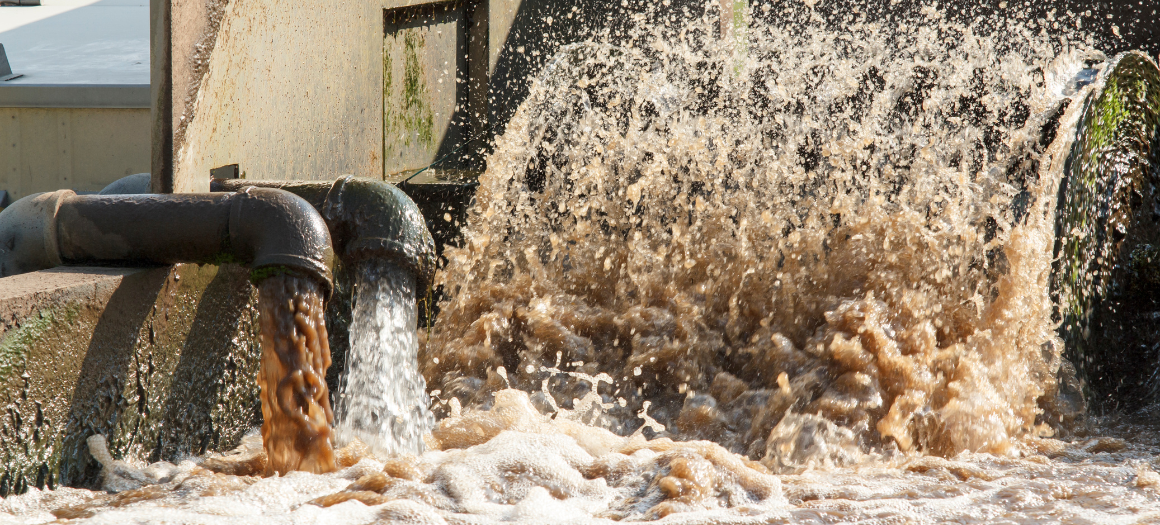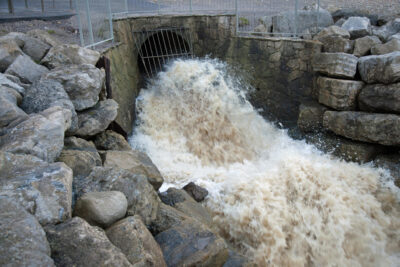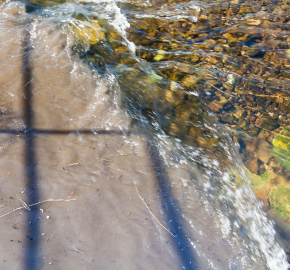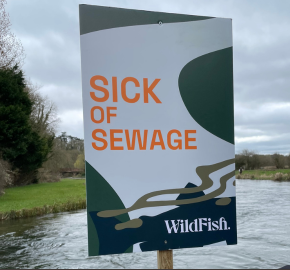Does the water industry really need ‘root-and-branch’ reform?

Some are arguing that we need a fundamental ‘root-and-branch’ reform of the water industry and that the Water (Special Measures) Bill should be used as a vehicle to bring about that change. This is misguided and could be dangerous.
WildFish is firm in its view that the existing legal structures – if implemented correctly with strong political support from the highest levels of government – are sufficient to put the water industry back on track.
Yes, it is undeniably true that, with the connivance of the central government, Ofwat and the Environment Agency (EA) have presided over a decade or more of the water companies’ performance getting markedly worse and rivers getting more polluted. All the while, money has been siphoned out of the companies that are now drowning in their own debt.
Our complaint to the Office for Environmental Protection (OEP) – the final results of which are expected in the autumn – has already identified possible failures to comply with environmental law by DEFRA, the EA and Ofwat about the regulation of combined sewer overflows (CSOs) (click here for more).
It is clear to anyone who has been involved long enough that such failures have been repeated across sewage treatment generally and also in relation to water resources.
However, that is water under the bridge. The money lifted from the pockets of bill-payers past and siphoned out of the companies isn’t coming back any time soon and the ex-Secretaries of State who presided over all that are now sunning themselves in Tuscany.
The new Government’s Water (Special Measures) Bill is to address such things as making water company executives criminally liable for serious failures and giving the water regulator new powers to ban the payment of bonuses if environmental standards are not met. The Bill will also, it is claimed, introduce new powers to bring automatic and severe fines.
However, when it comes to the environmental regulator, experience tells us that the real problems here are far more mundane (read more in our report: Doing its job?) to do with the EA’s poor resourcing, the EA’s refusal to review and to impose strict environmental permits that actually drive, rather than meekly follow investment (see the judgment in the WildFish JR of the Storm Overflow Discharge Reduction Plan), the ‘wishful thinking’ of operator self-monitoring, the EA’s weak Sanctions and Enforcement Policy, the pernicious effect of the Regulators’ Code and the statutory growth duty, the lack of political support for the EA taking a tougher approach, the EA’s (and fellow NGOs’) dubious willingness to accept cosy Enforcement Undertakings for repeat offences by water companies (WildFish report into Enforcement Undertakings).
This can be corrected now, and without the need for new law or any sort of fundamental reform. All it needs is for the new Secretary of State to show political courage.
Ofwat’s performance too has been woefully poor over many years, but underlying this is the unambitious and internally inconsistent Strategic Policy Statement (SPS) issued to the financial regulator by the Secretary of State.
When the most recent SPS was being drawn up, WildFish wrote and published a shadow SPS (Time to fix the broken water sector – linked here) to show how Ofwat could be given the direction it needs to put the water industry back on track. The new government can correct the SPS right now, by using the powers it already has under section 2A of the 1991 Act.
If the new government really means what it says, that it will not tolerate poor performance across the water sector, then it can start now by:
- Issuing a new, clear and unambiguous SPS to OFWAT that forces a much tougher financial regulatory approach. One that prioritises investment in the environment.
- Disapplying the Regulators Code and the statutory growth duty (section 108 of the Deregulation Act 2015) in respect of the EA and OFWAT’s regulation of the water companies.
- Directing the EA to review water company permits so that they drive and not merely follow investment, and ensure that all permits actually meet existing legal obligations (such as the 1994 Regulations on urban waste water treatment).
- Directing the EA to end Operator Self-Monitoring, take monitoring back from the water companies (which have amply demonstrated that they cannot be trusted) and increase permit charges to pay for independent continuous monitoring of all discharges.
- Directing the EA to stop using Enforcement Undertakings for water company offences and prosecute water companies aggressively under a new Sanctions and Enforcement Policy.
None of the above requires new law. It can be done now.
The alternative is months and years wasted devising new law to bring about some long-winded and slow reform of the water industry. As well as being unnecessary, this approach risks yet more dither and delay and will not deliver change rapidly enough.
Worse still, re-opening the existing legal structures is an opportunity that the water companies will no doubt seek to exploit.





I agree with much of what is written here, with the exception of doing away with Enforcement Undertakings. Again, what is needed is for the EA to apply the existing guidance, which states that the value of an EU should be equivalent to the fine that would be imposed had the company been prosecuted. In my personal experience, they rarely are although six and even the occasional seven-figure sums are increasingly seen. The advantage of an EU is that the funds go straight back into the watercourses that were polluted by the offender, unlike fines which now go into the Water Restoration Fund and become available for bids by all sorts of odd organisations and will not necessarily get spent on recovering local watercourses.
This article puts the position powerfully and succintly. It is clear that there is no reason why the government shouldn’t act immediately under existing powers rather than virtue-signalling with a promise of (unnecessary) further legislation. I suspect that the government wants to make political capital by attacking the water companies’ past performance, whereas what it should be doing is acting promptly and decisively for the future of our rivers.
Whilst everyone keeps banging on about the state of our water courses and rivers, water infrastructure, incompetent water management and financial mismanagement I have not seen one single idea, proposal or plan of how to solve the problems at hand.
If you genuinely believe that bashing the water companies, critisising the EA and OFWAT, and ending up with financial penalties, then you are misguided.
The whole problem stems from not understanding where the problem starts and how we eliminate and control it. Furthermore the problem does not just apply to just water and rivers but also applies to the very fabric of how our society operates.
WildFish is in a unique position of being supported by some very clever people who should be able to produce a proper plan to tackle the problems of our country. People will listen to and are inspired, when a feasilble plan is presented to them.
It is no good waiting for a political solution as most politicians have no concept of the problem, you must produce your plan and get everyone on board.
Thank you for your question. Yesterday we set out a series of changes that the government can make right now to address the water and sewage emergency, you can read them here: https://wildfish.org/latest-news/wildfish-set-out-actions-that-can-be-taken-right-now-to-reverse-the-decline-of-rivers/